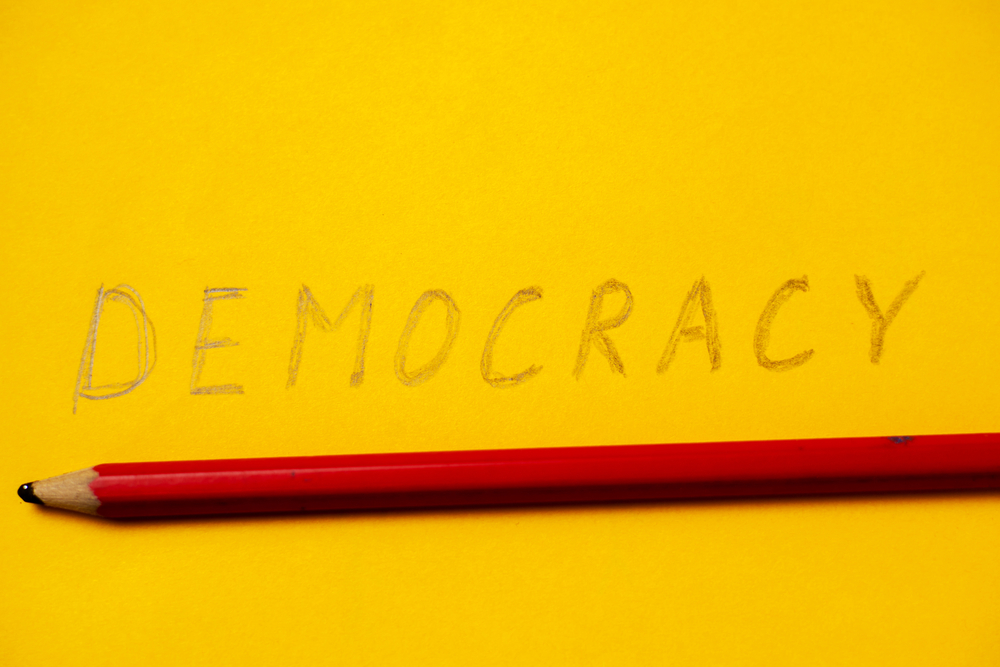This article will contain plot spoiler content for the new Star Wars movie. Also, the US Government is using your tax money to help kill thousands of innocents across the Earth. But, anyway, spoiler warning.
I just saw the new Star Wars movie. The plot is a mess, but that’s a discussion for another forum. What I find most interesting about the plot is how it tickles public perceptions about war. There are some serious problems here that need to be unravelled
When George Lucas made the original Star Wars, he deliberately referenced many real world themes in his tale of cosmic conflict. Specifically, he conceived of a group of ragtag freedom fighter rebels opposing a vast military empire in order to represent his views about the United States military adventurism in places like Vietnam (this nypost article is very interesting, noting that Lucas viewed American Graffiti, Apocalypse Now, and Star Wars as a thematic trilogy – he was involved with each – commenting on the impact of the war on American society). Nevertheless, cinematically, Lucas borrowed imagery from movies about WWII in order to present his story of space combat. Thus, the “good war” which justifies American power in the world is used to invoke the idea of righteous soldiering, and yet the object – the adversary – to that soldiering is US power itself. This small irony metastasizes in the most recent Star Wars movie.
The most recent film, The Last Jedi, is directed by Rian Johnson (Brick, Looper). I don’t know his politics.
Before explaining the problems with the movie, I have to cover the plot background.
The original Star Wars trilogy was about a small group of rebels who overthrew a Galactic Empire which ruled through military might. The hallmarks of the Empire’s power were large space battleships with laser canons which could annihilate continents, and a Death Star super station which had the ability to destroy entire planets. The trilogy ended with the unambiguously evil Emperor (literally, a magic space wizard using the powers of darkness) being killed, and the Death Star and much of the Imperial fleet destroyed.
George Lucas added to this trilogy, about 15 years ago, by introducing a trilogy of prequel films. These movies contributed a notion of galactic politics and conspiracy. It turns out, the Chancellor who was using emergency war powers to fight a threat (cough – Iraq), was actually a bad guy who had orchestrated the emergence of that threat and controlled it behind the scenes. This Chancellor made his war powers permanent, to become the Emperor.
And now, two years ago, Disney corporation took the reigns of the property, and have made a sequel trilogy following up after the events of the original. This sequel trilogy proposes that after the defeat of the evil Empire, somehow, some remnant of it ran off to consolidate power and reform, and reemerge. The “good” republic which emerged after the Empire’s defeat is summarily defeated with little fanfare in the first of these movies. The movie which just came out is the second in the trilogy.
Two movies into this trilogy, very little information is given about this new evil threat. They are called the “First Order”, have big, mean looking ships, and seem to just be a rehash of the old Empire. They were painted as an emergent threat just one film ago, but now it seems they are treated as the uncontested rulers of the galaxy. Like I said, the plot is a mess.
What has been said of this adversary, is that they’re “basically the Nazis”.
The good guys of the new films are called “the Resistance”, which I suppose is something different than a rebellion. In the first film, it’s stated that the republic is officially neutral concerning this new, evil empire. Appeasement is what I assume they are trying to criticize. Therefore, these new copy and pasted “rebels” (copied from the plot of the original trilogy) aren’t sanctioned by the official government, despite being on their same side (hence, “resistance”). However, at the start of this new film, the official government is defeated, and the Resistance itself is no more than a half dozen ships and a few hundred people.
The movie does strange things to advance the plot of this situation. First, it doesn’t give context for this new order. Do they have an ideology? What is it? How many ships do they have overall? Does all of the galaxy obey them? What was the point of fighting a war against the Empire in the original trilogy anyway? It didn’t seem like a very long-lived victory.
A brief mention is given to the fact that many people are getting very rich supplying arms to the new order. An even briefer mention suggests that the same arms companies are supplying both sides of the conflict and it’s all a big sham.
The only explanation for how the defeated Empire could reemerge after their defeat last time around is that they have a new, all-powerful space wizard leader now (more powerful than the last, I guess). He is surreptitiously killed in this film, with little explanation as to who he was or what his motivation was. The goals and motivation of the new order, who their leadership is now, and so forth, are equally unclear. As I said, this is two full movies into a three movie plot arc.
There’s more to complain about pertaining to the plot, but it has little to do with politics or war.
A notable scene at the beginning involves a “bombing run” against a space battleship. The bombers and their crews are set up to look very much like you’d imagine an old B-17 flying over Europe to appear. The ships don’t look that way, but the way they move, swerve, the way bombs fall from them – it all evokes the imagery of the mighty 8th. So, it’s fightin’ the Nazis again, I guess.
But what’s the point? That’s what’s problematic about this movie. It invokes war themes, and evokes war imagery, but to what end?
I suppose this could be a simple matter of that thing where “millennial SJW” writers have a hard time connecting to adult ideas. Star Wars is about war right? Or something or other? People, like my great uncle, they care about that stuff right? Didn’t my teacher say Nazis were bad. I heard people care about fightin’ Nazis.
And so, from that, they wrote a plot that they imagined people would care about.
By the end of the film, almost everyone from the Resistance is dead. There are about two dozen people left. The “First Order” is left with an impulsive, uncertain madman at the helm, still with an unclear overall purpose (impose order?) – but apparently they rule the galaxy.
Why did all those people have to die?
In theory, the background politics of Star Wars is fairly sophisticated. The political bodies of the galaxy don’t control the galaxy per se. What they control are access to the hyperspace trade routes to the known parts of the galaxy (Suez, Panama canals). It would be far too costly and impracticable for a political entity to control each and every planet itself with a direct police presence. This is why, in the original trilogy, the Empire needed a Death Star. Planets needed to police themselves, in their compliance with Imperial mandates. The Death Star was a threat to the few who willfully disobeyed.
In this new Star Wars, who exactly is it that this new order controls? Planets directly? Trade routes? The films do briefly mention the use of child slavery. So, is it that they do this at all, or is the problem that they seek to impose it on the whole galaxy?
My impression, reading very deeply between the lines, is that it would be likely that most planets in the galaxy have shrugged their shoulders and said, “fine, we’ll pay a tax and fly your banner from our statehouses,” but are otherwise left alone by this “order”.
See, it’s important how it actually works. The idea of two opposing sides of a battlefield meeting, and clashing, is very primal for human beings. It triggers a mess of different emotions. But, what is rarely asked is: what’s the point?
The real life Hitler had military ambitions which were – just economically – above and beyond anything his military machine was capable of supplying through spoils of war. The only exception would have been if some of the conquered areas welcomed Nazi rule. If you look at Belarus, some of the Soviet defectors, and the Baltic States, you see examples of people oppressed by the Soviet power who sided with the Nazis to gain liberation. Frankly, a limited nationalist state in Russia, comprised of friendly Slavs, was completely consistent with Nazi geopolitical aims. In Latvia today there are still memorial marches where locals dress as the Waffen SS. Maybe I could compare this to the way Texans view the Alamo.
Let me pause to discuss where I’m going here. In my opinion, Nazi ideology was beyond offensive. Specifically, and I mean specifically, the problem was that Nazism seeks to use state power to achieve social order and progress. Everything bad about it derives from that. If you’re a political problem, then the solution is a bullet through your head. See? What wasn’t as deep of a problem, with Nazism – in my opinion – was its ideological trappings. Sure, racism is offensive and sucks. But racism doesn’t kill people. State assertion of power is what kills people, and racism is just a vector.
People on the left today say: “punch a Nazi”. This means that we shouldn’t allow Nazi ideas to be openly preached. Why? Because that’s how you prevent Nazism. That’s – ostensibly – how Nazism was defeated in the 1940s. But this is so wrong. Nazism emerged out of a political environment in which many groups from both sides of the spectrum were using political street violence against each other. Many of them declared an end to speech. You defeat Nazis by defending free speech, not by banning discussion of Nazi ideas.
And this brings us to the idea of using Nazi stand-ins as the object of one’s war violence. What are “resistance” fighting? Against the charging of overly high tariffs on trade corridors – which then goes to fund slavery? Against the phenomenon of some planets being turned into labor colonies? Because in context, there are different ways for societies of people to react to different repressions.
War is political. Politics involves the coordinated interests of groups of people, and where they align and/or clash. War fits into that spectrum awkwardly, like a proverbial elephant.
War imagery evokes emotional responses. But there’s little sense which follows from it.
In the latest Star Wars, I don’t know who they’re fighting, what this enemy’s purpose is, what the scope of its power is, what the specific grievances are, what the Resistance’s purpose is, what its goals are, what it will do once it wins (since the last victory seems to have been short lived).
Totally absent from the spectacle of The Star Wars is any meaningful dissection of war itself and what its purpose is.
We can take for granted that there are always “good guys and bad guys”, who must inevitably fight. And that’s all war is. But man – look guys – I’m not an ancient Babylonian warrior priest, okay. That kind of thing isn’t my religion, and so I find it hard to accept with a straight face.
Star Wars is really popular. So, it has to affect how people think about war – especially kids. What do think this new film is trying to say about war? I can hardly tell. Bad guys kill people? Good guys believe in themselves?
Underneath it all is a commentary that says: hey kids, war just happens you know, can’t control it, it’s just part of the fabric of life, just be a good guy and punch Nazis if you can.
Can you imagine if political correctness wasn’t a thing? We’d have a “new order” of the evil Allahu Akbarians terrorizing the mighty and free New Republic of the Galaxy. Liberals, for all their hypocrisy, have at least suppressed cheap cultural war propaganda during this terror war.
The one glimmer of hope in this new Star Wars story comes from a character who briefly mentions the exploitative nature of war as a scam and charade. Perhaps the final movie of this new trilogy – due to release in just two years – will conclude the story on this note. Perhaps the “good guys” will realize that fighting war is rather pointless, and will instead struggle for their values through means other than industrial conflict killing.
I don’t know how they’d pull it off at this point, but that would be something.












